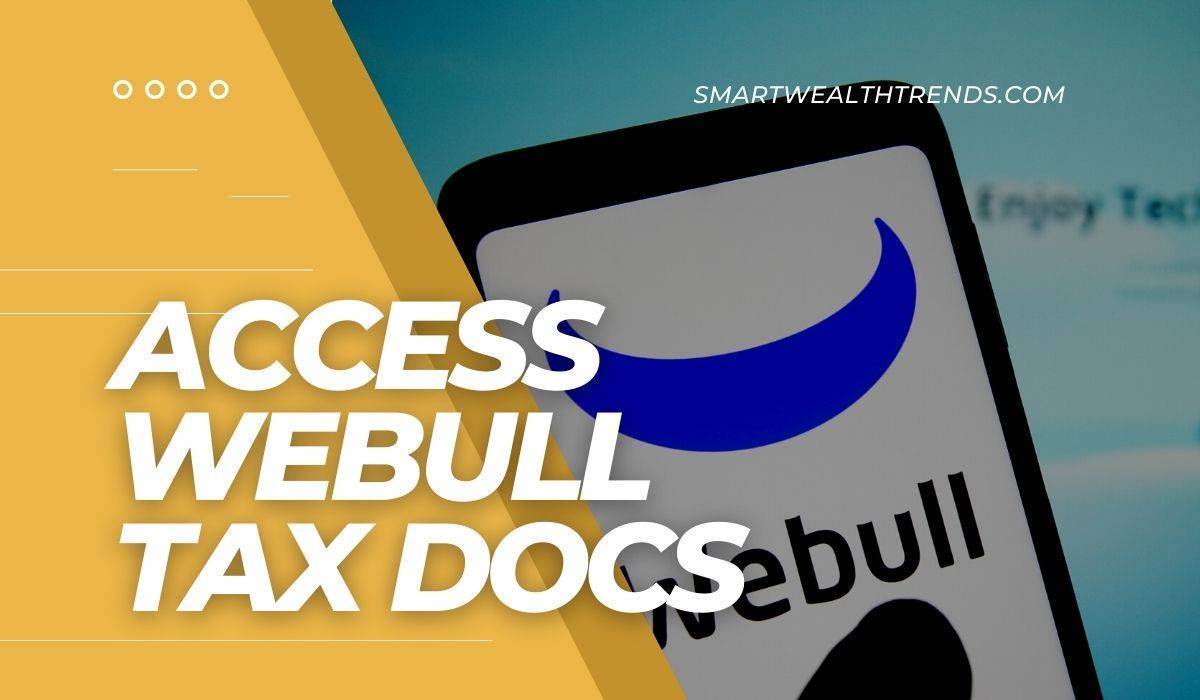Are you looking for a way to diversify your investment portfolio with alternative assets? YieldStreet allows you to invest in physical assets, such as real estate, artwork, and maritime vessels. These assets don't always perform as well as equities in terms of investment performance; however, it’s a great way to mitigate your overall investment risk, especially for the traditional investor who usually does not have access to assets like these. These alternative assets have the potential to generate yearly returns of at least 8%. In this YieldStreet review, we’ll analyze the pros and cons of the platform and see if it’s a viable investment opportunity for you.
![YieldStreet Review [wpsm_custom_meta type=date field=year]: Best Alternative Investment Platform 1 YieldStreet Hero Image](https://smartwealthtrends.com/wp-content/uploads/2021/10/YS_-_Marketplace__Offerings_Mockup-scaled-e1633205335533.jpeg)
YieldStreet
What is YieldStreet?
YieldStreet is a unique online platform for crowdfunded lending. While it still offers short-term commercial and multifamily real estate loans, it has recently expanded its portfolio to include real estate equity and investments backed by art, aviation, legal, and maritime assets. This allows investors on its platform to generate passive income backed by a multitude of other asset classes, subsequently diversifying their portfolio and reducing its exposure to unpredictable market conditions.
![YieldStreet Review [wpsm_custom_meta type=date field=year]: Best Alternative Investment Platform 2 phone collage@3x](https://smartwealthtrends.com/wp-content/uploads/2021/10/phone_collage@3x-283x300.png)
The majority of the loans it provides are for three years or less (with many less than two years). There are additional fund alternatives, equity agreements, and short-term investment choices available as well.
Finally, while most YieldStreet's products are exclusively available to accredited investors, one of them has been made available to non-accredited investors in the past year – the Prism Fund.
How Much Can You Make?
Is YieldStreet a Good Investment?
Most of the crowdfunded platforms and investments we examine on SmartWealthTrends are only focused on real estate, but YieldStreet is a unique exception. Although it has a lot of real estate investments, primarily debt or preferred stock in commercial real estate assets, it also has debt investments in art collections, maritime vessels, and short-term commercial loans.
YieldStreet as experienced specialists in each asset class evaluating and vetting each one to ensure the highest probability of positive return, so this isn't just a random collection of assets attempting to be profitable. This is significant because most retail investors lack the expertise to appraise an art collection or assess the scrap value of a tanker ship that could be used as collateral for a high-yield, short-term loan.
The platform assesses each opportunity in light of a wide investing philosophy that favors loans that meet the following criteria:
- Originated by experienced asset managers.
- Offers low minimums.
- Has shorter durations.
- Yields targeting 8% or more.
- Low correlation with the stock market.
As with any other platform, there is danger, especially if you're investing in debt secured by an asset you may not be familiar with or capable of evaluating. Still, there is also potential profit, thanks to YieldStreet's higher interest rates when compared to traditional investing.
Pros & Cons
YieldStreet Pros & Cons
Pros
- Mix of assets: Beyond real estate, other assets (such as legal, aviation, art, and marine) may make the platform even more appealing to investors wanting to diversify.
- Low minimum investment: YieldStreet has recently begun to provide alternatives with smaller $500 minimums, aimed at non-accredited investors or those looking for a safe haven for their uninvested funds.
- Short-term choices: Many of the loans on its platform are for less than two years, which is much less than other platforms that target real estate projects that take three to five years — or more. YieldStreet might be a good option for you if you're wanting to diversify your portfolio with additional short-term investments.
- Reasonable fees: Most of its products have costs ranging from 0% to 2%, which is cheaper than many other platforms. Depending on the structure, certain of its fund alternatives have greater costs.
- Diversified fund options: YieldStreet has started offering more diversified fund options over the past year.
Cons
- Most offerings are only open to accredited investors: If you have less than $1 million in net worth and/or earn less than $200,000 per year, you can't invest in most YieldStreet deals.
- Mix of assets: YieldStreet might not be the best place for investors looking for crowdfunded real estate deals, given its diversification into other asset classes.
- Higher-risk loans: While collateral like art, real estate, and marine vessels back YieldStreet’s loans, they’re riskier debt investments with a higher likelihood of default.
- IRA limitations: If you want to use a self-directed IRA (SDIRA), you have to create a new one that you can only invest through YieldStreet. This could result in paying more fees if you want to use your SDIRA for other investments as well, as you'll need more than one. Most other platforms work with multiple third-party IRA custodians.
Safety
Is YieldStreet Legitimate?
The founders and management executives of YieldStreet are well-known names in the alternative finance and technology industries. The company also has a large credit facility from notable investors like George Soros, and it just signed an agreement with Citi (NYSE: C), which stated it will utilize the YieldStreet platform to invest $2 billion for its wealthier customers over the next few years. It was also allegedly considering the potential of forming a special purpose acquisition company (SPAC) to either go public or co-sponsor to generate more cash at the time of this assessment.
![YieldStreet Review [wpsm_custom_meta type=date field=year]: Best Alternative Investment Platform 4 YieldStreet Sign Up Flow](https://smartwealthtrends.com/wp-content/uploads/2021/10/img4-1024x536.png)
Investors have put approximately $1.3 billion into YieldStreet in total. Through mid-2021, the platform has delivered almost $750 million in capital to investors, including nearly $140 million in interest, for a net IRR of 11.54 percent. So yes, YieldStreet appears to be the real deal.
However, YieldStreet investors have had some unfortunate luck in the past, as borrowers have defaulted on their loans. Loans related to vessel deconstruction had a noteworthy default, as the borrower deceived YieldStreet and other investors. The firm was probed by the SEC and the FBI, and investors filed a class-action lawsuit. YieldStreet filed a lawsuit against the borrower and was awarded a $77 million judgment, allowing it to seize assets to repay the loans, so all funds were eventually returned to investors. While this isn’t necessarily Yield Street's fault, it’s important to understand there is always risk involved.
Account Types
Who can Invest with YieldStreet?
Accredited Investors
The majority of YieldStreet's services are exclusively available to accredited investors, just like the majority of other crowdfunded real estate investing platforms. As a result, as an investor, you must fulfill at least one of the following criteria:
- Net worth of at least $1 million, excluding the value of your primary home.
- At least $200,000 annual income (or $300,000 as a couple filing jointly) with a reasonable expectation that will continue.
You must also be able to make the minimum investment in each offering, as specified below, in addition to being an accredited investor.
Non-Accredited Investors
In late 2020, YieldStreet launched its Prism Fund to non-accredited investors. With a modest minimum commitment, individual investors can have access to numerous alternative asset types in a single fund.
Minimum Investment
What is The Minimum Investment for YieldStreet?
Minimum investments with YieldStreet can be as little as $10,000, depending on the form of the contract. Borrower Payment Dependent Notes are debt obligations to YieldStreet that are legally designed to be independent and bankruptcy-resistant (meaning investors are protected from losses related to a YieldStreet bankruptcy).
The minimums may be greater for Special Purpose Vehicles, which are organized as distinct LLC subsidiaries of YieldStreet owned by its investors and so are also bankruptcy-remote companies. Aside from the variation in investment minimums, each structure has its own set of fees detailed below.
In addition to those two loan kinds, YieldStreet has begun to provide diversified fund and short-term note alternatives with reduced investment minimums. The minimum investment in both the Prism Fund and the Short Term Notes is only $500.
Fees
What are YieldStreet's Fees?
On an annualized basis, YieldStreet receives between 0% and 2% in management fees for each loan posted on its platform (their Short-Term Notes series has no fees). On the offer page and in the appropriate documents, the cost for each investment is explicitly stated. It is also deducted from the borrower's cash flows and is not paid by investors. In other words, if the borrower fails to pay, YieldStreet suffers as well. This ensures that its interests are matched with those of its shareholders. A deal originator may also be charged a listing fee to utilize the site.
![YieldStreet Review [wpsm_custom_meta type=date field=year]: Best Alternative Investment Platform 5 YieldStreet Earnings](https://smartwealthtrends.com/wp-content/uploads/2021/10/Overview_optimized-1-1024x577.gif)
YieldStreet also charges a fixed yearly fee per investor. The cost varies depending on the loan's legal structure: in the first year, it's $100 for Special Purpose Vehicles and $150 for Borrower Payment Dependent Notes, then $70 and $30 in subsequent years. It's not invoiced directly to investors, like the management charge, but is taken from your first dividends.
The cost structures of YieldStreet's fund alternatives vary. The YieldStreet Prism Fund, for example, has a 1% annual management charge and a 0.5 percent maximum annual administrative expenditure. Meanwhile, the Aviation Fund charges a management fee ranging from 0% to 0.25 percent and an incentive fee ranging from 0% to 2.5 percent.
Security
Is YieldStreet Safe to Invest with?
The most significant risk associated with YieldStreet investments is a borrower's failure to repay the loan. Your investment is organized as distinct legal companies with you and other investors as the owner of the debt in each investment. It is a bankruptcy-remote from both YieldStreet and the originator who delivers the loan to YieldStreet to sell on the platform.
YieldStreet loans are short-term, pay a high yield, and are secured by real estate, art, or a marine vessel. Suppose the borrower fails on the loan and is unable to repay it or negotiate an acceptable deal. In that case, the asset is foreclosed, and there are no assurances that it will be sold at a high enough price to satisfy all creditors. This might result in you losing money, especially if the loan you invest in is junior to the asset's other obligations.
YieldStreet's asset-backed loans are less risky than some other investing alternatives, but they aren't totally 100% risk-free. Because the return compensates investors for the risk they are incurring by lending their cash to the borrower, it delivers greater yields than most other alternative passive income options.
Borrowers have defaulted on their loans in the past, although most loans have been returned on schedule, or YieldStreet has been able to work out a recovery plan. As previously reported, a borrower attempted to mislead YieldStreet and other investors on several loans related to vessel deconstruction. YieldStreet won this lawsuit, but it may not always recoup these assets, especially if the assets used to secure the loan lose value during a downturn in the economy.
However, as long as the economy keeps chugging along, the potential returns on this sort of short-term debt should continue to outweigh the risks of default, especially if you diversify your capital over different loans and asset classes. If the current macroeconomic environment takes a turn for the worse, the danger of defaults increases dramatically. Keep this in mind, and invest in accordance with your risk appetite.
Compare
How does YieldStreet Compare?
When comparing the two biggest players in the crowdfunding real estate sector, Fundrise and YieldStreet are both great options for two different kinds of people. If you want a more hands-off approach, we recommend you read our Fundrise review where we go over all of its benefits, shortcomings and more. However, if you want a more active approach where you can invest in more asset classes like art, legal services, and more, YieldStreet is probably the better option.
![YieldStreet Review [wpsm_custom_meta type=date field=year]: Best Alternative Investment Platform 7](https://smartwealthtrends.com/wp-content/uploads/2021/10/rsjeg3eh4nkdxfmy9b7f.jpeg)
![YieldStreet Review [wpsm_custom_meta type=date field=year]: Best Alternative Investment Platform 8](https://smartwealthtrends.com/wp-content/uploads/2021/10/FundriseLogo_Supplied_250x250.png)
Bottom Line
Is YieldStreet for you?
FAQ
YieldStreet FAQ
Is YieldStreet Safe?
YieldStreet is a great platform for both accredited and non-accredited investors who are looking to diversify their asset holdings in asset classes like art, real estate, and more.
Is YieldStreet my Wallet FDIC Insured?
Yes, all your funds are FDIC insured by YieldStreet's baking partner Evolve Bank and Trust. This mean, by law, your funds are insured up to 250,000 for all individually owned accounts.





